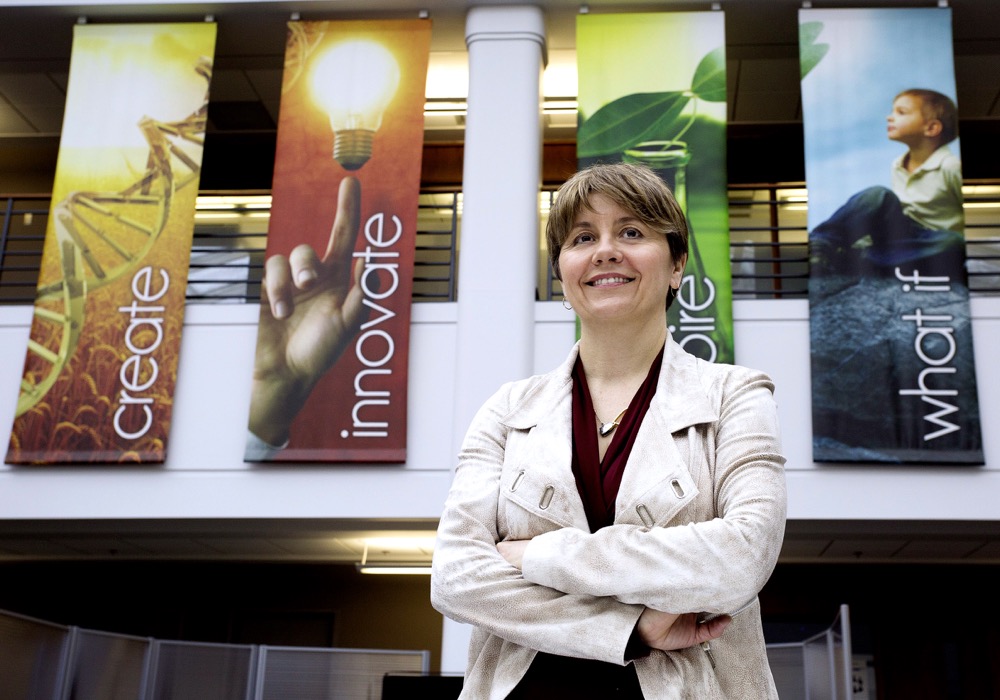[Updated April 27, 2017] Susan Blair makes her point. An organization has a much better chance of success, she says, when leadership gives clear direction to their teams about what they’re working toward and how they’re expected to achieve it.
But then she follows through, because in Blair’s view, that kind of success demands leaders with values, vision, and a strategy.
And, says Blair, head of animal health for Boehringer Ingelheim in Canada, it’s just as true on farms and ranches where the team consists of family members and employees as it is in global corporations, because of where it leads:
Read Also

Five reasons why you avoid farm bookkeeping
Bookkeeping for the farm business might not be anyone’s favourite chore, but staying on top of it can help your farm access the funds it needs to grow.
Says Blair: “I believe helping employees understand their role, and ensuring they are trained to help them achieve their greatest potential, can help increase engagement, boost productivity and deliver results.”
Blair grew up on a farm in Saskatchewan, attending university there before buying land and farming in the early ’80s. It was a tough time to start farming, and after a few years she sought opportunities off the farm.
Since then she’s built an impressive career, including working on the recent exchange of Sanofi’s animal health business (Merial) and Boehringer Ingelheim’s consumer healthcare business, and in late February, Blair was appointed to lead the combined animal health business unit in Canada.
Below, in a conversation that started in the midst of the business swap between Boehringer Ingelheim and Merial, and before she took on her new post, she shares her insights on mentorship, leadership, and how she connects management challenges on the farm to the corporate world.
Q: What characteristics make you the right person to lead Boehringer Ingelheim through this merger?
Blair: I am extremely passionate about the animal health industry and the opportunities we have to advance animal welfare, prevent disease and strengthen the human/animal bond. At Boehringer Ingelheim, we believe strongly that when animals are healthier, humans are healthier too.
My passion for my work — and my desire to do it well — influence the way I approach my role. I view success as a collective team achievement, and one of the most important things I do is surround myself with great people who share similar passions about animal health and have similar views about the power of teamwork.
From there, I approach my work with a big-picture focus and then work backwards to set goals and strategies. I work collaboratively with my supervisors and my team to set expectations 12 to 18 months in advance, and then we set realistic plans to deliver against those expectations.
Open communication and being able to adapt to changing situations are both vitally important.
And finally, I cannot emphasize enough the importance of being prepared and remaining positive. There are always going to be surprises and unexpected challenges. However, by strategizing about potential solutions, I am able to focus on positive outcomes instead of letting the stress of the situation become overwhelming.
Q: When you took the helm of animal health at Boehringer Ingelheim, did you make any changes to the role of executive director?
Blair: There are a number of things that worked well in my previous role and contributed to the success of the animal health business in Canada. These will continue as we move forward.
For example, at Boehringer Ingelheim, we have a clear set of values (trust, respect, empathy, passion) that guide how all employees act and treat each other. These values are extremely important because they set an expectation of how we conduct ourselves in our day-to-day work.
We also make it a priority to set clear objectives and expectations allowing us to remain focused on what is most important. This clear direction has contributed to our local success and is something that will continue.
Another key contributor to our success is having a collaborative, adaptable team that can learn from each other’s experiences while seeing the bigger-picture impact of decisions and actions. I brought my team of leaders together to build a shared vision that serves as our anchor. The strength and character of our team will remain a priority.
In terms of what I changed in my previous role, I focused on simple things that would have the biggest impact. For example, how we made decisions as a team, creating an environment for cross-learning and everyone being accountable for individual as well as team success.
Another priority for me in my previous role was making sure the right individuals were working on the right things. This meant that I relinquished control of some tasks to allow my role to become more focused on bigger-picture priorities with an emphasis on the team.
Q: Aside from the integration of the two companies, what’s going to be the toughest part of your job as a business leader?
Blair: As a business leader, I am always focused on creating a great work environment for my team members where they have the freedom to do their best work and are challenged to stretch themselves professionally
Creating an environment where employees are fully engaged and committed to the overall vision is paramount to success for any business. With that in mind, I believe one of the toughest jobs I have as a business leader is helping define and foster a strong culture for the organization.
Q: Who inspires you as a leader?
Blair: George Heidgerken is one of those people. He started as a sales representative for BI in Alberta and took one step at a time to eventually become the global head of BI animal health. Following the acquisition of Merial, George is now the global head of our livestock business. He is someone who sees the glass as half full and always looks for what is possible. I find his approach and outlook quite inspiring — especially knowing he grew up in Saskatchewan.
Ruta Stauskas, head of human resources for Boehringer Ingelheim Canada, inspires me for many different reasons. She is a powerful communicator, she understands the human dynamic very well and is a great coach.
Both George and Ruta have been formal mentors and continue to inspire me.
Q: How important has mentorship been in your career?
Blair: Mentorship has been extremely important in my career. And what’s interesting is that some individuals did not always know they were mentors because the relationship wasn’t formalized in that way. These informal mentors are people I looked up to or found inspiring for a variety of reasons. I was curious about what made them so capable in certain areas and wanted to learn how I could translate or adapt that ability in my own life.
At first, I relied on observation and questions as a way of developing my abilities, but then I advanced to asking for coaching or feedback.
Q: Tell me about how you handled a situation differently because of something you learned from a mentor.
Blair: It’s vital to understand the role of a mentor. One of my mentors once told me, “I’m here to help coach you on how to drive your car, not drive it.” That differentiation is really important.
There have been many situations where a mentor has helped me become more aware of the impact I can have on others — whether positive or negative. Developing this awareness is important as it allows me to adapt as required to create the right environment for the team.
Other times, mentors have asked a key question or have made a statement that has helped me see things with more clarity or through a different lens.
Q: What are the characteristics you look for in a mentor?
Blair: I seek out individuals who are authentic, passionate and have a desire to help create a better place or life experience for others. Courage is also important — whether it is taking a risk or making tough decisions that will benefit the greater good. I also look for a sense of optimism — those who see the glass as half full. And finally, I look for individuals who would like to see me do well.
Q: How did you approach people you wanted to learn from? What worked and what didn’t?
Blair: My approach has varied based on the individual. In some cases, I didn’t ask the person to formally become a mentor; rather, it was more informal. I would call and ask them to have coffee, pose questions and ask for feedback over a period of time (months or years). With other individuals, I would ask them outright if they would become a mentor and we would set up the mentoring relationship more formally. With my formal mentors, I would try to adapt to their preferred style of mentorship and work with their time constraints.
Regardless of the style, I approach all of my mentorship discussions the same way. I will have considered what I would like to get out of the session and will have thought through the various topics to be covered. Being well prepared ensures the most productive use of time for everyone involved.
Q: Is there an etiquette to mentorship?
Blair: Not really — I think it is mostly common sense. It is important to be respectful and remember that time is a precious resource.
Q: What would make you say yes to a mentorship request?
Blair: In order for me to agree to a mentorship request, I need to have enough time in my schedule to dedicate to the relationship. This is to be fair to the mentee and to ensure we both get value out of the experience. From a potential mentee, I look to work with an individual who has an interest in self-reflection and is interested in receiving coaching. I prefer to work with individuals who are self-motivated and self-directed.
Q: Anything else you want to add?
Blair: When I was young, my parents taught me to surround myself with people who wanted to see me do well. I followed their advice and found there were a lot of people who wanted to see me succeed. I just needed to ask.
I also learned that mentors come in different packages — and sometimes when you least expect it. I like to refer to these individuals as secret mentors.
As an example, my sister Sandra has been an incredible support to me over the years. She has been a mentor without knowing it. She is practical and has a big-picture perspective on life. We have chosen different career paths; however, her insight and perspective are always invaluable and can be applied directly to my work.
My parents are another great example. Growing up on the farm, my parents instilled a strong work ethic in me. They also taught me how to take risks and to be accountable for my decisions and actions.
My dad also taught me early on about the importance of prioritization and that striving for excellence in a timely manner is more important than perfection.
















